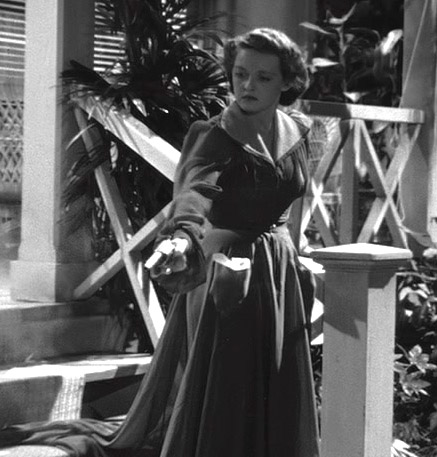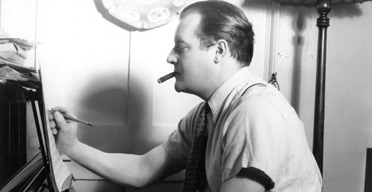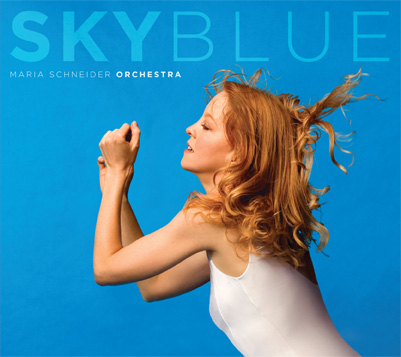 PBS’s presentation of Persuasion was a strange piece of television, wasn’t it? In the promos it looked like a typical costume drama. And bits of it were: The costumes, the locations. The actors, the script. However, the camera clearly wanted nothing to do with so expected and static a project, and it roamed and reared about, with an extreme close-up here and a showoff-y long take there. All in all, a surprising way for a camera to act when bonnets and broughams are present.
PBS’s presentation of Persuasion was a strange piece of television, wasn’t it? In the promos it looked like a typical costume drama. And bits of it were: The costumes, the locations. The actors, the script. However, the camera clearly wanted nothing to do with so expected and static a project, and it roamed and reared about, with an extreme close-up here and a showoff-y long take there. All in all, a surprising way for a camera to act when bonnets and broughams are present.
Since watching it, I’ve been wondering off and on how that filming style was decided on. Generally, the camera seems to have been charged with acting out everything the stifled heroine Anne Elliot cannot. To be not just an observer, but a confidante and proxy. It’s an interesting method for getting around a restrained and introverted heroine, to have the camera compensate for her.
(That, or someone wanted to show off all the tricks he or she learned in film school.)
The end result was distracting at times, nicely moody in others, and not entirely unsuccessful (how’s that for a British construction?). I liked actress Sally Hawkin’s toothiness and her full Duchess of Cleves face. Besides, the more Jane Austen adaptations I see, the more I admire how durable Austen’s novels are in their DNA. They can hold up to all sorts of knocks and indignities.
PBS’s Jane Austen series continues through April. Next Sunday is Northanger Abbey.
Archives for January 15, 2008
TT: For better and worse
I was sitting on the couch eating a bowl of high-fiber cereal yesterday morning when the phone rang. It was Paul Moravec, my collaborator on The Letter.
“Can we talk?” he said. “I’m stuck on the high C in scene four. What do we do next?”
 Translation: Paul is composing the fourth scene of our opera, in which Leslie Crosbie, the character played by Bette Davis in the 1940 film version of The Letter, shoots her lover dead when he tries to break off their affair. First, though, comes an aria in which Leslie lays it on the line to the faithless Geoff Hammond. Here’s part of my text for the aria:
Translation: Paul is composing the fourth scene of our opera, in which Leslie Crosbie, the character played by Bette Davis in the 1940 film version of The Letter, shoots her lover dead when he tries to break off their affair. First, though, comes an aria in which Leslie lays it on the line to the faithless Geoff Hammond. Here’s part of my text for the aria:
I hate myself for wanting you.
I hate the lust that makes a fool of me,
The heat between my thighs
Whenever I think of touching you.
I hate it all!
And yet…and yet…
I stand before you helpless,
Unable to resist,
A slave of my desire
In this stinking jungle
Halfway around the world from home.
You’re all I have,
You’re all I want,
And I can never let you go!
Never!
At this point Leslie lets loose with a high C sung triple forte as bombs go off in the orchestra pit. Which brings us to Paul’s question: how do you get from Leslie’s C to the moment shortly afterward when she shoots Geoff? Obviously some kind of pace-changing transitional device is needed–but what?
“Well, let’s talk psychology,” I replied. Paul and I spent the next ten minutes delving into Leslie’s likely state of mind in the moments leading up to the killing, and how it might be portrayed musically.
 “O.K.,” he said when we were done. “Makes sense. I’ll get to it.” He hung up. I finished my now-soggy bowl of cereal, sat down at my desk, and went back to work on chapter eight of my Louis Armstrong biography.
“O.K.,” he said when we were done. “Makes sense. I’ll get to it.” He hung up. I finished my now-soggy bowl of cereal, sat down at my desk, and went back to work on chapter eight of my Louis Armstrong biography.
I’d been writing about Armstrong’s 1932 European debut, and was summing up the reviews of his opening-night performance at the London Palladium. The most interesting one is by Constant Lambert, a British composer-conductor-critic who knew far more about jazz than most classical musicians of the Thirties: “An artist like Louis Armstrong, who is one of the most remarkable virtuosi of the present day, enthralls us at a first hearing, but after a few records one realizes that all his improvisations are based on the same restricted circle of ideas, and in the end there is no music which more quickly provokes a state of exasperation and ennui.”
 It happens that Lambert was the first classical musician of importance to write about Armstrong, and I was struck by the negative tone of his comments. Why did so perceptive an artist fumble the ball on so significant an occasion? I spent the rest of the day trying without success to explain why Lambert misunderstood Armstrong, and was growing tired of beating my head against the wall.
It happens that Lambert was the first classical musician of importance to write about Armstrong, and I was struck by the negative tone of his comments. Why did so perceptive an artist fumble the ball on so significant an occasion? I spent the rest of the day trying without success to explain why Lambert misunderstood Armstrong, and was growing tired of beating my head against the wall.
The clouds finally lifted at the end of the afternoon and I knocked out the following paragraph:
What inspired this curt dismissal? If Lambert heard only the songs that Armstrong was performing at the Palladium, it is easy to see how he might have failed to recognize the full extent of the trumpeter’s imaginative resources. It is striking that on the same occasion he praised Duke Ellington as “a real composer, the first jazz composer of distinction.” Perhaps he would have responded differently to Armstrong had he heard “Beau Koo Jack” or “Skip the Gutter” instead of “When You’re Smiling” and “You Rascal You.” Or not: Lambert was the first of many critics who would fail to see that Armstrong the virtuoso-clown and Armstrong the endlessly fertile improviser were one and the same person.
Breathing a hard-earned sigh of relief, I jumped into the shower, changed clothes, and took a cab to the Jazz Standard to hear Maria Schneider‘s band. No sooner did I stroll into the club than Maria came up to me.
“Hey, be one of the birds tonight, O.K.?” she said, pressing a small wooden whistle into my hand.
 Translation: Maria’s band would be playing “Cerulean Skies,” a piece from Sky Blue, her new album, that incorporates the sounds of birdsong. Here’s how she describes the piece in her liner notes: “We begin in some imaginary forest–South American probably–a paradise filled with bird life. I tried to capture the vibration of such a place through the theme, gradually opening it up as a forest does at the start of every day.”
Translation: Maria’s band would be playing “Cerulean Skies,” a piece from Sky Blue, her new album, that incorporates the sounds of birdsong. Here’s how she describes the piece in her liner notes: “We begin in some imaginary forest–South American probably–a paradise filled with bird life. I tried to capture the vibration of such a place through the theme, gradually opening it up as a forest does at the start of every day.”
The members of the band supply the sound effects on the record, but at live performances Maria hands out bird calls to selected members of the audience. This was the first time that I’d been asked to do the honors, and I felt unexpectedly nervous.
“You’ll throw us a cue, right?” I asked.
“Don’t worry,” she said. “You’ll know when. Oh, one more thing–be sure and project.” Then she trotted off.
An hour later the composer of “Cerulean Skies” stood up in front of the band and signaled to Frank Kimbrough, the pianist. He played a cloudy arpeggio. She raised her left hand into the air and waggled her fingers. The club filled with the simulated cries of tropical birds. I took a deep breath, put my whistle to my mouth, and blew a long, warbling tone that trailed off into silence. The band eased in beneath me, and all at once I found myself in the middle of one of Maria’s exotic, lushly colored musical landscapes, huffing and puffing for all I was worth. Wait till I tell Mrs. T about this, I thought.
I called her in Connecticut as soon as I got home. “Guess what happened to me tonight?” I said. “I made my debut with the Maria Schneider Orchestra!”
“And guess what happened to me?” she replied. “I nearly froze. It snowed up here last night. The power went out first thing this morning, and it didn’t come back on until five o’clock. I pulled out an extra quilt and stayed in bed and read mysteries all day. Then I got up, made a grilled-cheese sandwich and a bowl of tomato soup, and watched a documentary about Jackie Gleason.”
“I guess I had a better day than you did,” I said, shamefacedly.
“I guess you did,” she said, not unkindly.
UPDATE: A friend writes:
I dunno…Mrs. T’s day sounds like a perfect day to me.
So far I’ve received a dozen other e-mails saying the same thing.
TT: Almanac
“Finicky eaters and those who claim they forget to eat are never to be trusted. Absent from their bodies, they are a danger to themselves and others. They scorn pleasure, health, common sense and the call of their animal natures. They are vain, niggling and hard.”
Patrick Kurp, Anecdotal Evidence (Jan. 8, 2008)
